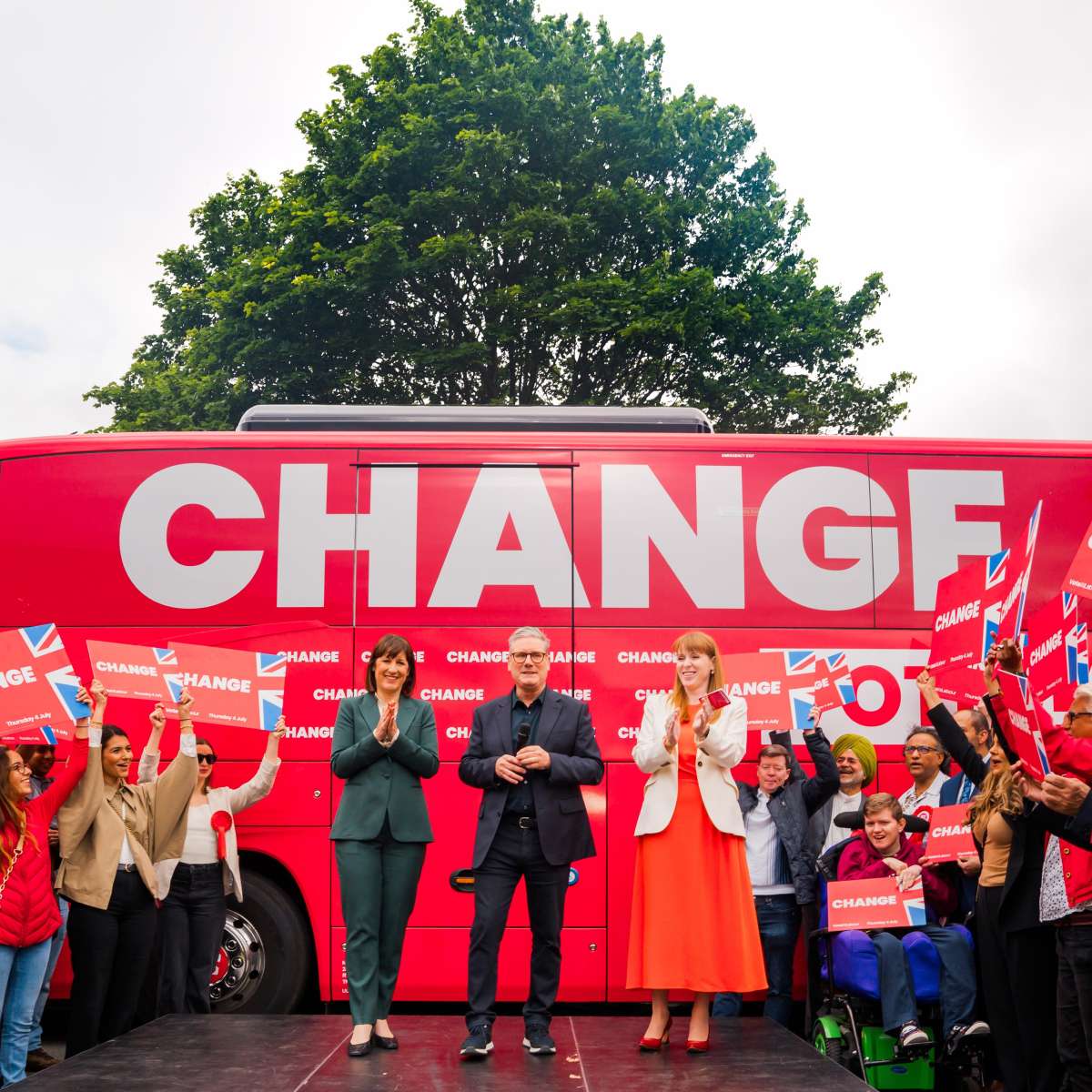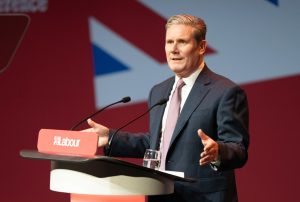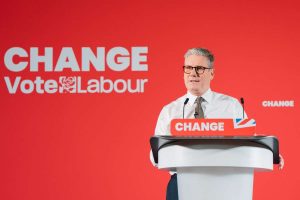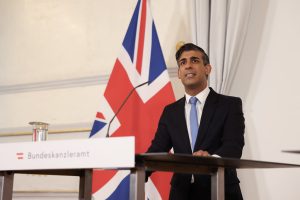Britain has been a nuclear power since the 1950s, and both Labour and Conservative governments have consistently supported atomic weapons. Since the 1990s, Britain’s nuclear deterrent has consisted of four Royal Navy submarines armed with Trident missiles…reports Asian Lite News
Keir Starmer pledged Monday to keep the U.K.’s nuclear weapons, seeking to dispel criticisms that his center-left Labour Party is soft on defense.
Starmer is the current favorite to win Britain’s July 4 election and become prime minister. His campaign is centered on his claim to have transformed the party since he replaced Jeremy Corbyn, a longtime opponent of nuclear weapons and critic of NATO, as Labour leader in 2020.
Witness the final chapter of the Lok Sabha Elections unfold on HT with live vote count and results. Explore now! Explore now!
Starmer, 61, told voters they can trust Labour to safeguard the country’s economy, borders and security — trying to overturn a perception that Labour is weaker on security and more profligate with taxpayers’ money, than Prime Minister Rishi Suank’s center-right Conservatives.
“My commitment to the nuclear deterrent is absolute,” Starmer said Monday during a campaign appearance at a military museum in Bury, northwest England.
“Nobody who aspires to be prime minister would set out the circumstances in which it would be used. That would be irresponsible, but it is there as part of a vital part of our defense, so of course we would have to be prepared to use it,” he said.
Britain has been a nuclear power since the 1950s, and both Labour and Conservative governments have consistently supported atomic weapons. Since the 1990s, Britain’s nuclear deterrent has consisted of four Royal Navy submarines armed with Trident missiles.
Starmer said a Labour government would build the four new nuclear submarines that the Conservatives have already committed to. He criticized the Conservatives for defense spending cuts that had given the U.K. “the smallest army since the time of Napoleon,” the French leader who fought Britain 200 years ago.
He said the world had entered “a new age of insecurity” and “national security is the most important issue of our times.”
The schism between pro- and anti-nuclear forces was long a fault-line in the Labour Party. It was Prime Minister Clement Attlee’s Labour government that developed atomic weapons in the years following World War II, making Britain the world’s third nuclear-armed state after the United States and the Soviet Union.
Starmer said his entire top team shared his commitment to the nuclear arsenal, even though several members, including deputy leader Angela Rayner and foreign affairs spokesman David Lammy, voted against renewing Trident in 2016.
He also pledged that a Labour government would increase defense spending to 2.5% of Gross Domestic Product, though he has not set a deadline. Prime Minister Rishi Sunak says his Conservatives will meet the target by 2030.
Defense Secretary Grant Shapps said Starmer had delivered “another empty speech.”
“By refusing to commit to 2.5% defense spending by 2030 he has been unable to show the clear and bold leadership this country needs in uncertain times,” Shapps said.
The Conservatives, who have been in office for 14 years, are trying to overcome a widespread sense that voters want change. On July 4 voters across the U.K. will elect lawmakers to fill all 650 seats in the House of Commons. The leader of the party that can command a Commons majority — either alone or in coalition — will become prime minister.
Poll predicts biggest-ever win for Labour
Britain’s opposition Labour party could be on the path to the biggest election victory in its history, pollsters YouGov said on Monday, predicting a thumping 194-seat majority.
The poll, which looked at voting estimates across all UK constituencies, predicted that Labour could win 422 out of 650 seats in the July 4 election.
The Conservatives under Prime Minister Rishi Sunak were predicted to win 140 seats by the YouGov poll, which was carried out for Sky News television.
Labour’s victory would be bigger than its former leader Tony Blair’s majority in 1997 and could see the party now led by Keir Starmer gain 222 seats after its bitter defeat at the last vote in 2019.
The Tories, however, were predicted to lose 232 seats across the country. “This result would be beyond landslide territory,” YouGov said.
This latest poll will likely make grim reading for Sunak after failing to budge polls suggesting a sizeable Labour lead following nearly two weeks of intensive campaigning. The smaller opposition Liberal Democrat party was expected to quadruple its seats to 48.
The findings were revealed moments after Brexit figurehead Nigel Farage announced he was taking over as leader of the anti-immigration Reform UK party and standing as a candidate in the election. The poll predicted Reform would win no seats.
Projections also showed that seats held by some big Tory government names were under threat, including those belonging to finance minister Jeremy Hunt and defence minister Grant Shapps
ALSO READ-Starmer to crackdown on foreign workers






